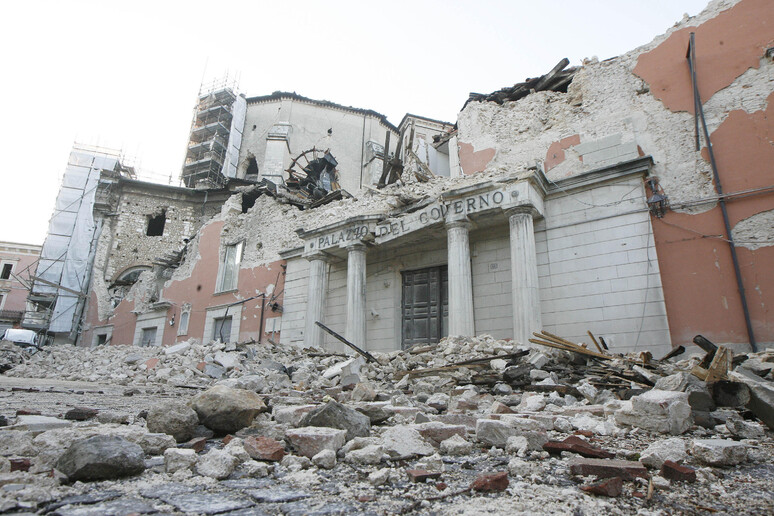A ruling in a civil case related to
the 2009 L'Aquila earthquake in which 309 people died that in
part blames some of the victims of the disaster has provoked
shock and outrage.
The sentence regarded a suit for millions of euros in damages
presented by some of the relatives of 24 people who died in a
building in the centre of the Abruzzo capital early on April 6,
2009.
The judge said these people should have left their
accommodation, rather than staying inside, after two strong
tremors, one at 23:00 and the other at 1am, before the deadly
quake hit at 3:32.
As a result, it said that the victims had a share of the blame
that amounted to 30% due to this "incautious" behaviour, meaning
that the compensation was to be reduced by this degree.
The victims' relatives sued the heirs of the building's
constructor, who has since died, due to irregularities in how it
was built and the interior ministry and the transport and
infrastructure ministry, and the city council for failing to
conduct the proper oversight.
The court ruled that the two ministries each had a 15% share of
the blame, the constructor 40% and it dismissed the case against
the city council.
Maria Grazia Piccinini, a lawyer and the mother of Ilaria
Rambaldi, a 25-year-old student who died in the quake, said the
ruling was especially surprising as experts had played down
fears about a possible disaster during seismic activity in the
run-up to it.
Indeed, seven members of the Major Risks Prevention Commission
were convicted over the information people received before the
quake.
But those rulings were all subsequently quashed, except for that
of Bernardo De Bernardinis, former vice-president of Civil
Protection Agency's technical department, whose conviction was
upheld by the supreme court, while the term was reduced.
"This sentence astounded us," Piccinini told ANSA.
"Where is this share of the blame?
"Even the supreme court upheld the conviction of one of the
members of the Major Risks Commission.
"How can you say today that these young people should have been
outside when everyone remembers the reassurances?"
ALL RIGHTS RESERVED © Copyright ANSA











